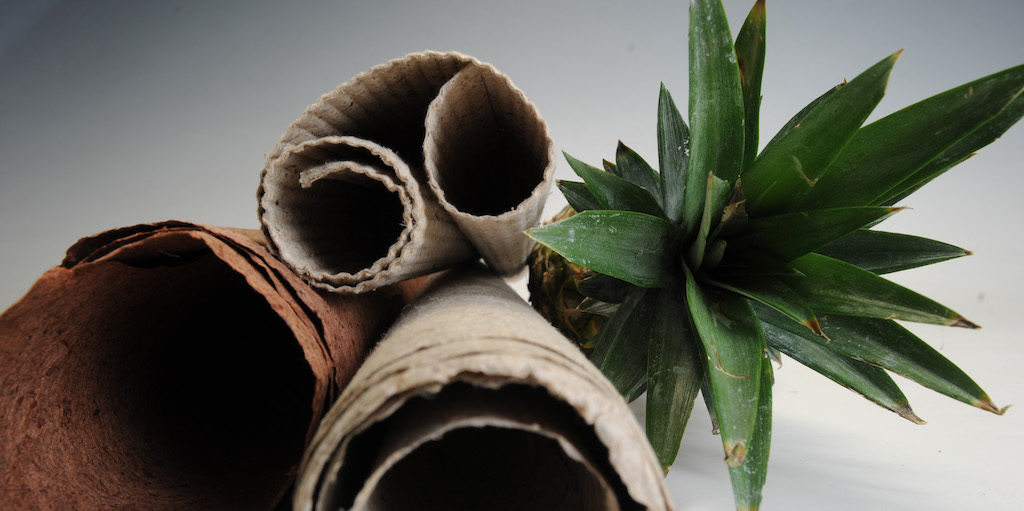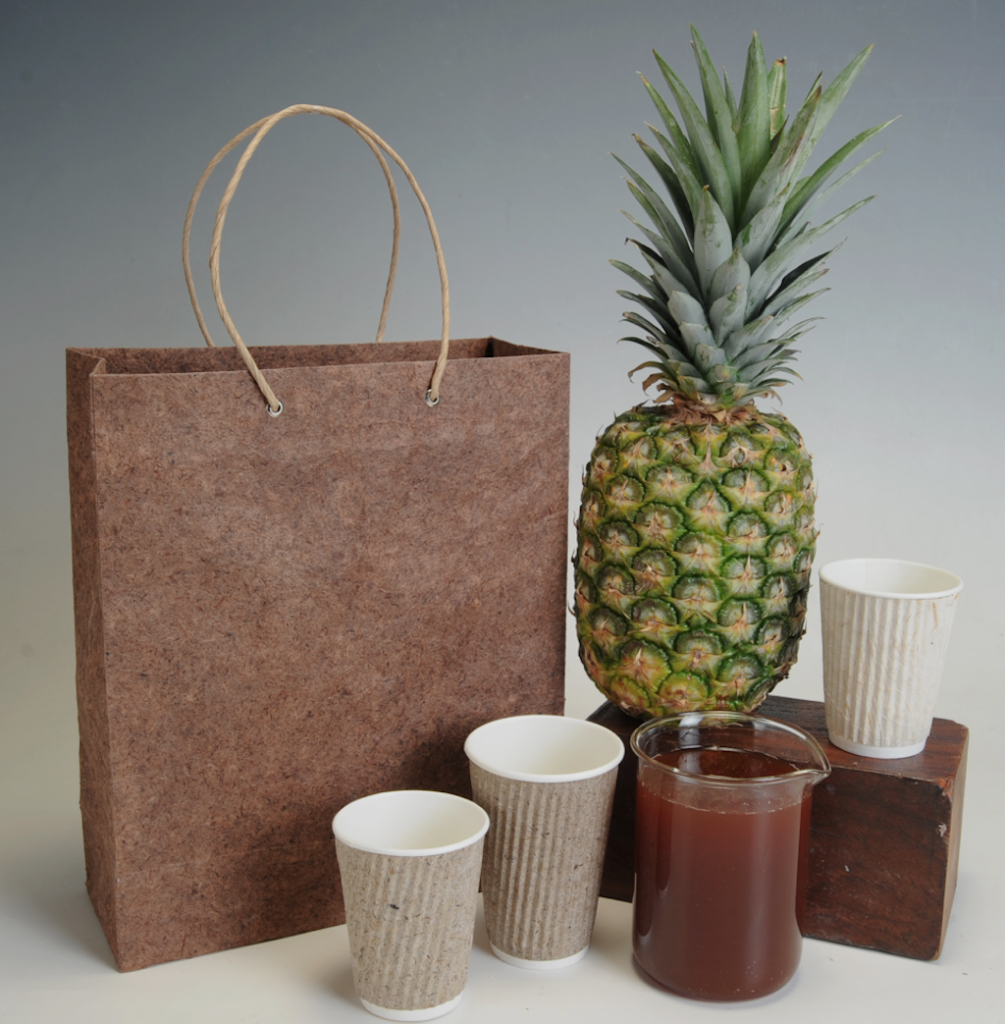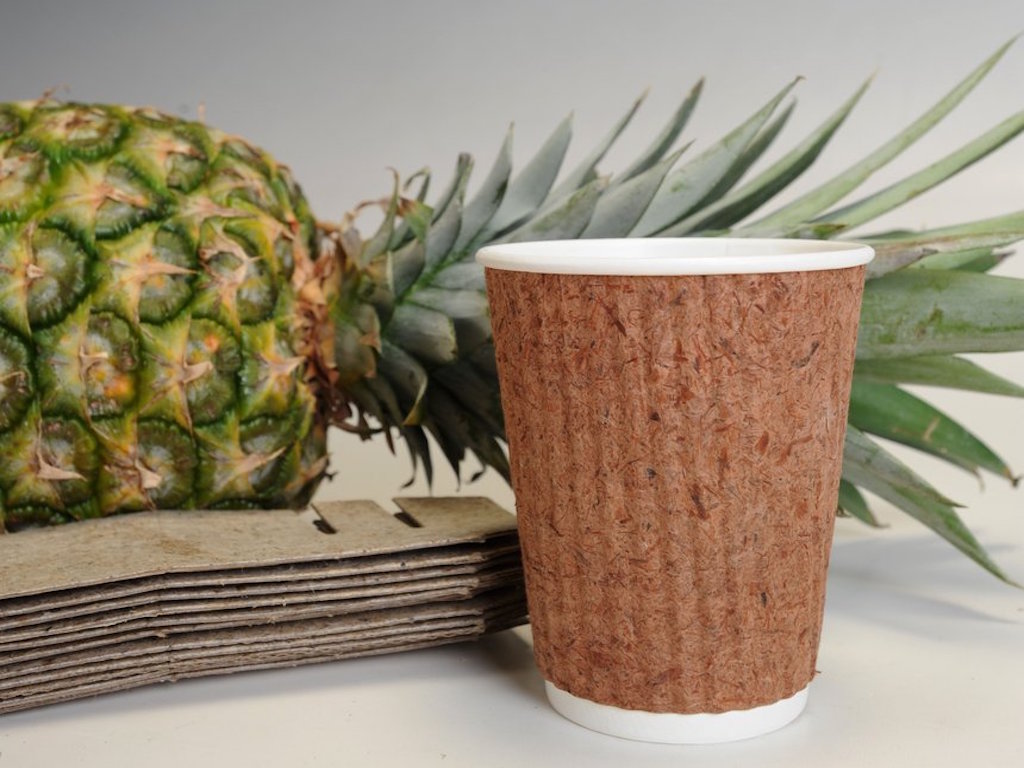3 Mins Read
Developed by the Design Center of the Philippines, Pinyapel is a specialty paper made from pineapple leaves that would otherwise go to waste, which can be used to make a number of products from coffee cups to paper shopping bags. It has recently won the 2019 Wood Pencil award by the UK-based charity D&AD Future Impact for efforts in sustainability, marking the Philippines’ first award in the category.
Pinyapel, the 100% natural treeless pineapple leaf paper created by the Design Center of the Philippines in collaboration with Cagayan de Oro Handmade Papercraft, Nature’s Fresh and IdeaTechs Packaging, aims to solve two problems at once: agricultural waste and deforestation. It reuses discarded leaves from the locally abundant fruit pineapple, to make a specialty paper that can be used in various products, such as coffee cups, paper bags, boxes and packaging. With the Philippines being the second biggest pineapple producer globally, Pinyapel not only helps reduce waste in agriculture and deforestation associated with paper made from trees, it also helps local pineapple farmers in the country as it gives the leaves a new purpose and value, driving additional revenue.

Commenting on the recent award win, which will see the project join the Future Impact accelerator programme, Rolyn Lomosco of the Design Center said that they hope that it will help “take Pinyapel to the next level, which is to be commercially and industrially available” in the future.
Because it is made from pineapple leaves, the Pinyapel material is water-resistant, making it a suitable natural and sustainable alternative for non-biodegradable food packaging materials commonly used on the market, such as plastic film and coated foil. Currently, the inventors of Pinyapel are working on applying their specialty paper to a number of products, such as paper shopping bags, paper cups, sheets, boxes and even household fittings like light fixtures.

Other exciting innovations are popping up in the Philippines to tackle the issue of food waste and plastic pollution. A young filipino scientist Montinola has created a new blend of bioplastic with two biopolymers, pectin and carrageenan, which can again be found in locally abundant crops mango peels and seaweed. Unlike conventional plastics, bioplastic is water soluble and does not release other harmful toxins, and can be used in not only food packaging products but also in medicinal applications like scaffolding to stop localised bleeding.
Elsewhere in Asia, a supermarket chain in Thailand has come up with a new way to reduce single-use plastic using locally abundant resources as well. Instead of using plastic packaging, the grocery chain is using banana leaves to package their fresh fruit and vegetable produce, which quickly sparked widespread praise earlier this year.
Images courtesy of Cagayan de Oro Handmade Papercraft / Design Center of the Philippines / IdeaTechs Packaging.




